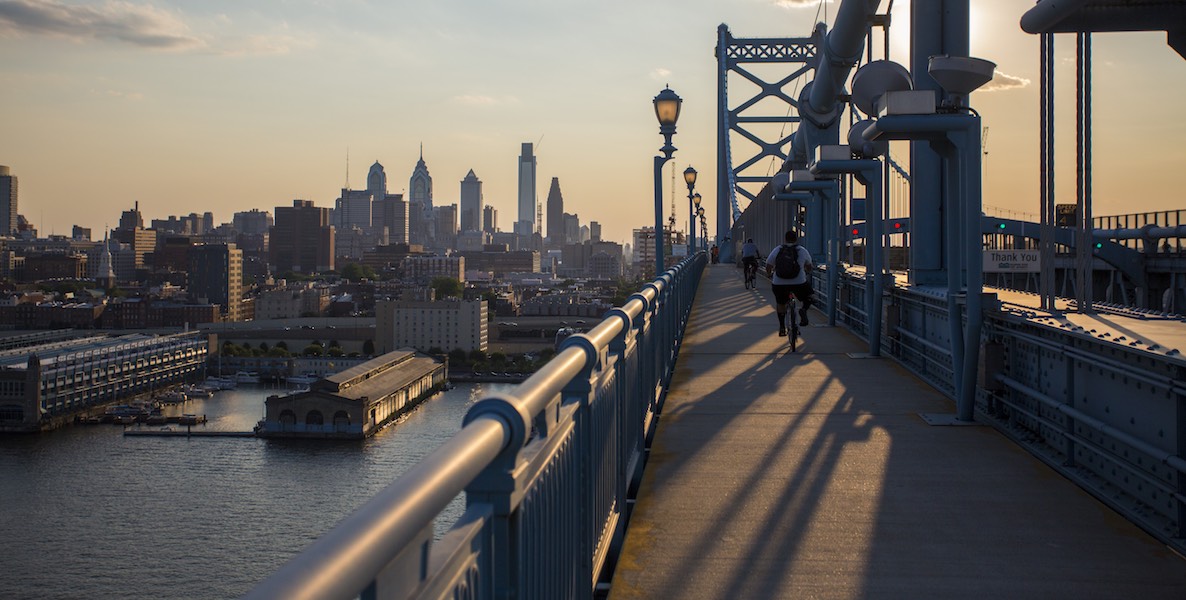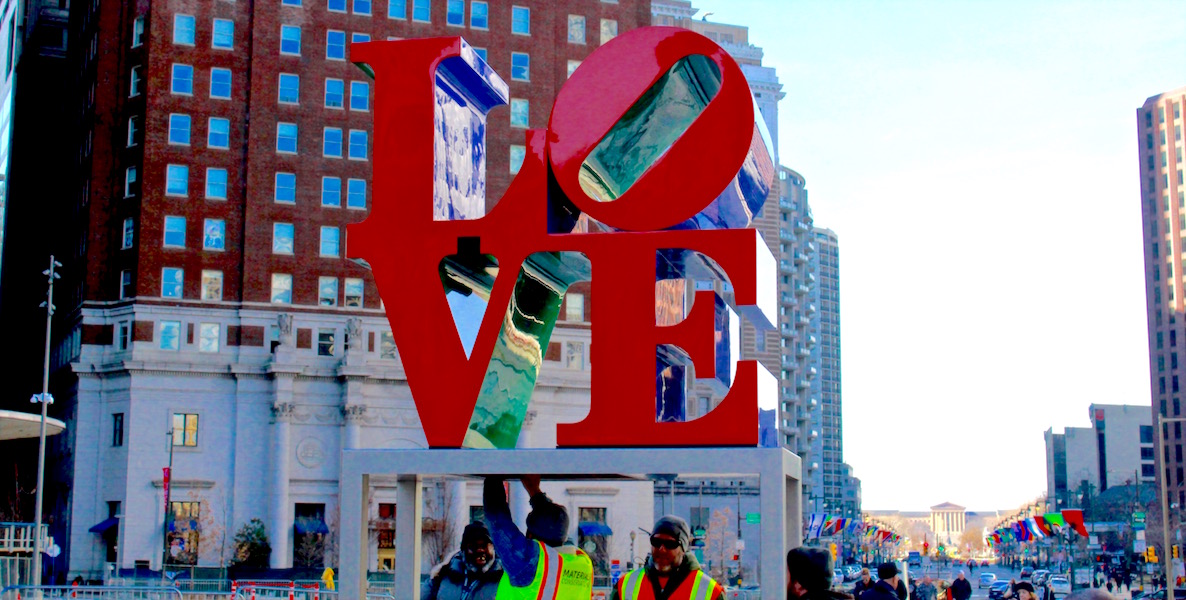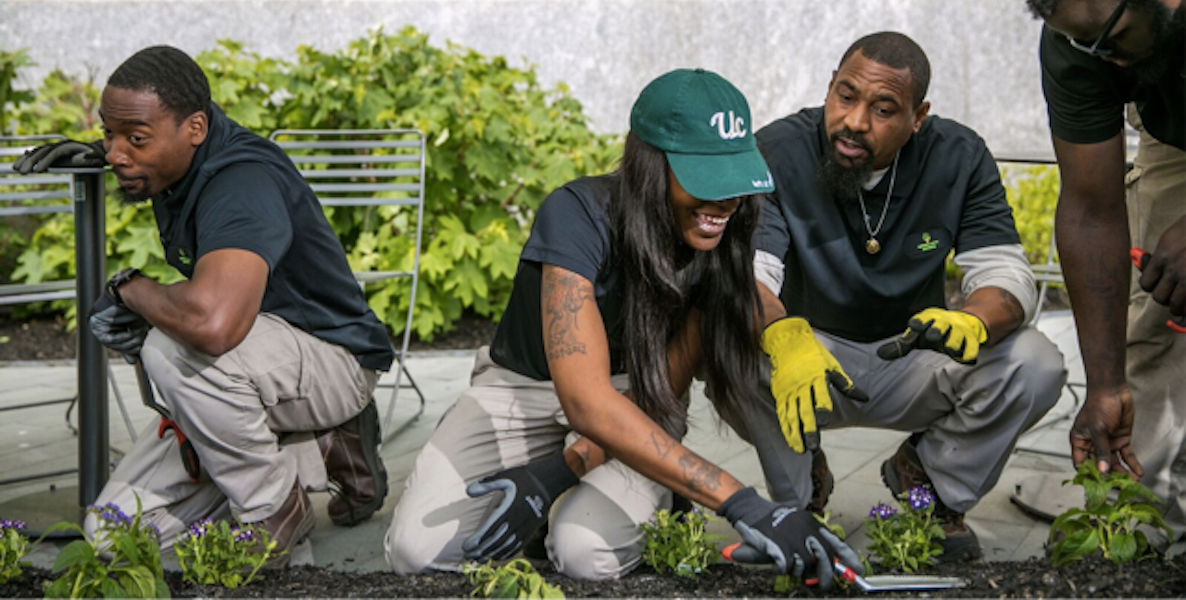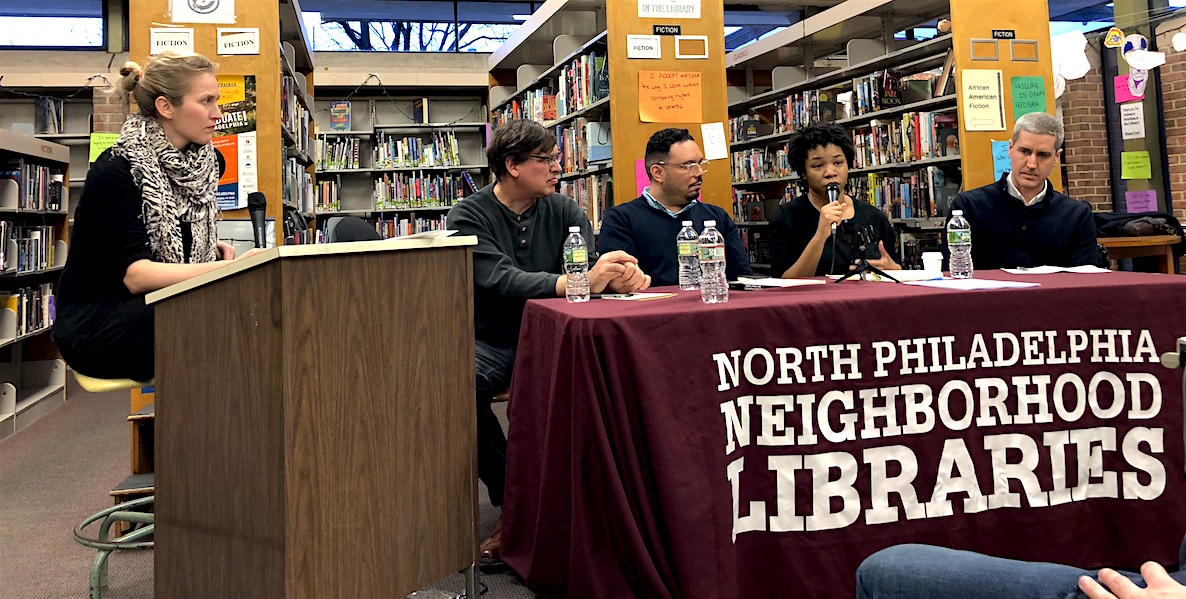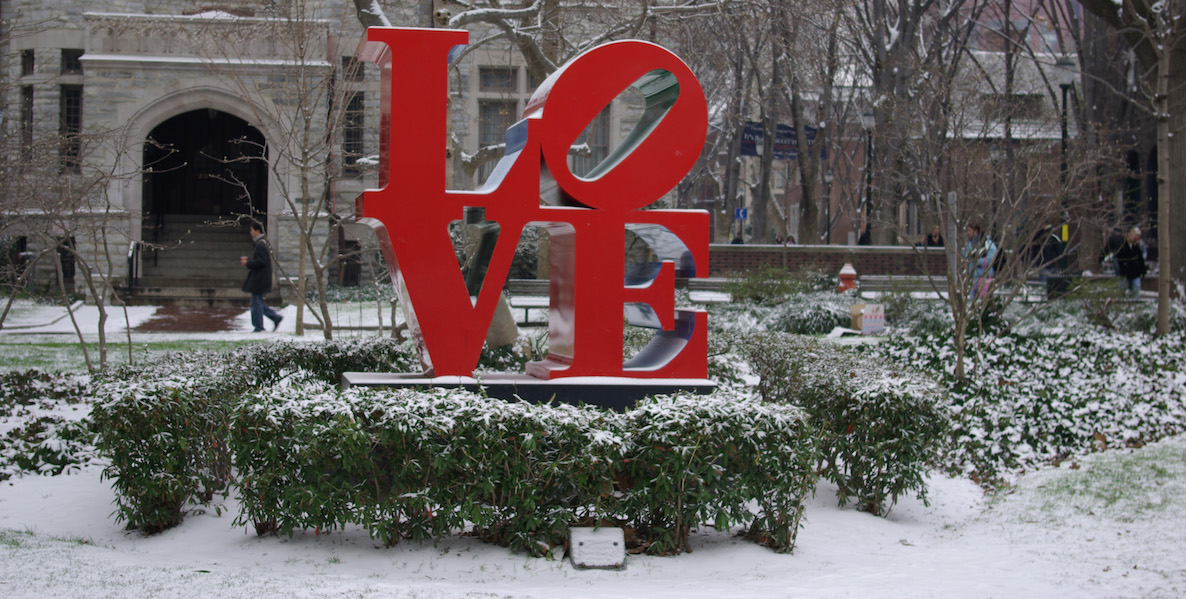Our city’s name derives from two Greek words: “Phileo” meaning love and “Adelphos” meaning brother. In this age of conflict and confrontation, we should pause to ask if we are living up to the notion of “brotherly love” that was core to our founding.
William Penn’s “holy experiment” was based on the radical notion that those who believe differently than us should not only be tolerated, but welcomed; that diversity strengthens, not weakens, a community; and that a government and society that promotes intolerance and discrimination must be resisted and opposed. Penn after all was the ultimate rebel. He refused to follow in the footsteps of his Admiral father, becoming instead a pacifist Quaker, an act for which he was imprisoned in the Tower of London. He was expelled from Oxford for holding religious services in his dorm room, rather than attending the prescribed Anglican chapel.
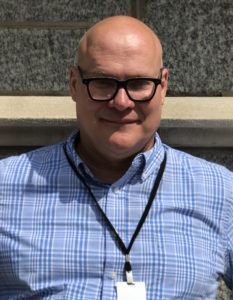
And when he received from King Charles II the charter to Pennsylvania, as repayment of a debt owed his deceased father, he explicitly rebuked the rampant discrimination and persecution that marked British society of the time. He purposefully welcomed to his new colony the “others” in European Society, including such misfits and nonconformists as the Quakers, Mennonites, Amish and Jews. Penn’s “Brotherly Love” extended not only to those who believed as he did, but instead and perhaps more importantly to those who were different. It extended an explicit invitation to those who were persecuted and shunned, shut out of society.
Over 300 years later, another pacifist and rebel would call on us to embrace our diversity and resist policies and practices that promote discrimination. Perhaps most poignantly in his writings and speeches decrying the war in Vietnam, Martin Luther King, Jr. called out a malignant movement in America that glorified the accumulation of wealth while ignoring our obligations to the poor and hungry; that called for greater spending on the military while shortchanging the social safety net programs recently enacted through the Great Society; and that objectified those on the margins of society, not only in America but across the world. He noted that when “profit motives and property rights are considered more important than people, the giant triplets of racism, extreme materialism, and militarism are incapable of being conquered.”
Dr. King’s answer, in a speech in Riverside Church exactly one year to the day before his death, was to call for nothing less than a revolution in values in America. He called upon us to recapture the revolutionary spirit in America and declare our eternal opposition to poverty, racism and injustice. He called for a “fellowship that lifts neighborly concern beyond one’s tribe, race, class and nation,” for “an all-embracing and unconditional love for all mankind.” Dr. King called for Brotherly Love.
If we remain silent when others diminish and demean our neighbors, then we ourselves are culpable.
This battle for the heart and soul of America, for what we will stand for as a nation, is far from over. And this struggle is neither a partisan nor a religious one. No one party or one religion has a monopoly on compassion and caring. But there is a battle going on, nevertheless. It is an overarching argument over what our obligations are to the “other,” to those on the margins of our society, to those without a voice and without power.
This battle is playing out as the Justice Department penalizes cities that create welcoming environments for refugees and immigrants. This battle is playing out in the tax and budget legislation that sanctify increases in military spending and tremendous giveaways to those with the very most in our nation, yet threaten the very existence of the social safety net programs designed to lift our most vulnerable out of poverty and degradation. And this battle is playing out in the language used to describe those living in poverty, not only in our nation, but across the globe. Why help those who “just spend every darn penny they have, whether it’s on booze or women or movies?” Why help those who “lack the appropriate mental state” to lift themselves out of poverty? Why welcome immigrants from “shithole” countries where poverty runs rampant?
With the soul of the nation at stake, we need the forces of compassion and understanding to rise up louder than ever before—to embrace the mantle handed down to us by William Penn and Martin Luther King, Jr. For Philadelphia to live up to the ideals on which we are founded, we must continue to be willing to embrace our diversity and welcome the society’s “others” into our midst.
Stories About Your CityRead More
There are also opportunities to learn even more about how to help those who exist on the margins of our society, including our neighbors wrestling with mental illness or addiction. Take a Mental Health First Aid Class from Philadelphia’s Department of Behavioral Health and Intellectual Disability Services (DBHIDS) and you will be able to identify, understand and respond to signs of a behavioral health crisis rather than simply averting your eyes and walking away. Sign up for a class with Prevention Point Philadelphia to learn how to use Naloxone (Narcan), a medication available as a nasal spray that reverses an opioid overdose, and you might just prevent someone’s son or daughter from being one of the over 100 people Philadelphia loses to the opioid crisis every month.
This battle for the heart and soul of America, for what we will stand for as a nation, is far from over. And this struggle is neither a partisan nor a religious one. It is an overarching argument over what our obligations are to the “other,” to those on the margins of our society, to those without a voice and without power.
We can also lift up our voices. If we remain silent when others diminish and demean our neighbors, then we ourselves are culpable. Mayor Kenney is setting a courageous example by resisting threats and bullying from the U.S. Department of Justice to hold fast to our birthright as arguably America’s first and greatest “sanctuary” city. He deserves our vocal support as the federal government seeks to penalize those standing tall against discrimination. We also need people to speak truth to power and denounce ongoing efforts to diminish the meager assistance we are providing to those struggling to make ends meet in our community, including proposed cuts to Medicaid, SNAP (“food stamps”), housing programs, job training, and child care programs. We cannot sit idly by when such “welfare reform” proposals in Harrisburg and Washington threaten to make it even harder for those with the least in our society to live in security and dignity.
Perhaps the most expression of our voice comes through our vote. We must learn how those up for election in the coming months stand on these core issues and exercise our rights accordingly.
Finally, we can provide our support and expertise. Organizations such as BSM serve as the safety net below the safety net, and when our neighbors fall through the gaps in our systems, we are there to catch them. But we can’t do so without the active assistance of the community of caring and compassionate individuals. Our core work of providing warm meals and supportive services to the most vulnerable in the city is not reimbursed by government; we rely on private giving to fund 95 percent of our operating budget each year. Even those organizations who do receive government support must rely on private dollars to leverage inadequate funding from federal, state and city programs.
Volunteer with Broad Street MinistryDo Something
And for those who are so moved, you can take the next step and share your talents and expertise with one of these organizations—everyone has something to give. My favorite example are the volunteers who show up at BSM each Thursday with their sewing machines in hand to stitch up clothes or backpacks or even hem skirts or pants—we call them the “Menders.”
William Penn and Martin Luther King, Jr. were willing to risk prison and even their lives on behalf of the “others” in our society by fighting against intolerance and discrimination. We have inherited their beautiful democracy, so we must pick up their mantle. We need to understand that too many in our society live with scarcity and trauma; we must raise our voices against those who would diminish the poor and the dispossessed; and we must give of our time, talent and treasure to those who have the least. We must proclaim that in this great and powerful nation, there should be a seat at the table for everyone. If we can do this, Philadelphia, then we can live up to our birthright as the City of Brotherly Love.
Michael J. Dahl is Executive Director of Broad Street Ministry.
Photo via Flickr


